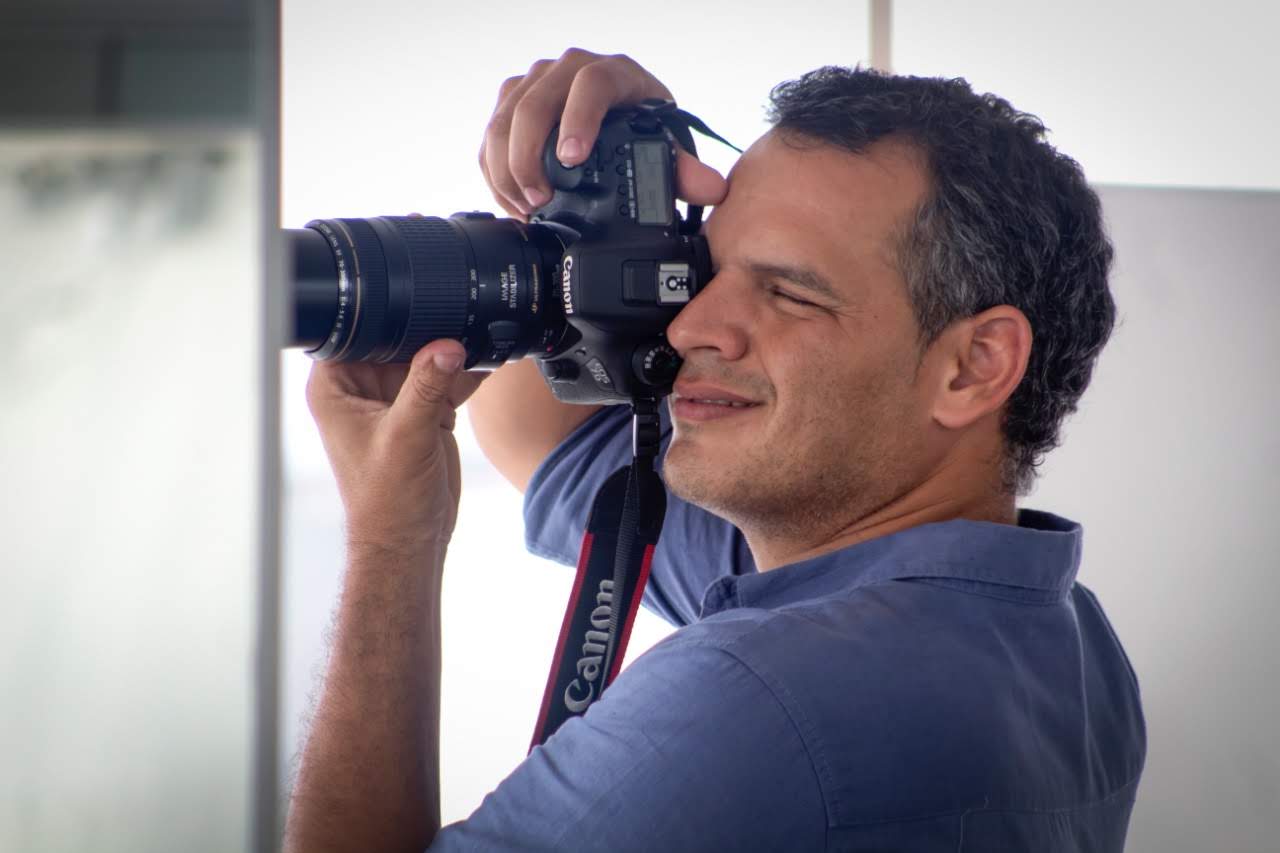
From The Art Of The Image To The Art Of Changing Life
- November 22, 2022
- admin
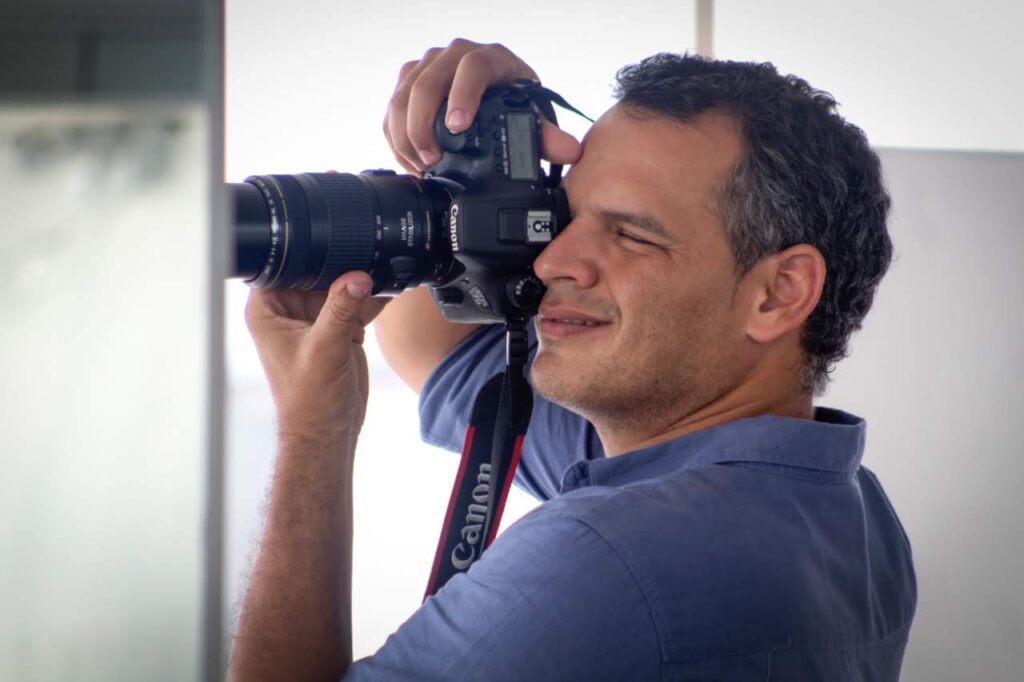
From the Art of the Image to the Art of Changing Life
Gregorio Enrique Torres Hernández’s business is called Creative Workshop and is focused on visual arts, ranging from professional photography for social events, fashion, artistic activities, to personalized photos or contemporary abstract artwork that he paints.
For Enrique, the decision to migrate grew from the need to improve his an his family’s quality of life. “I wanted to give my son better opportunities in life, a future with more options, that he could see in his life possibilities to broaden his interests.”
For months he weighed options, limiting them to the small budget they had. Through his older sister, they were able to leave to Bogotá, but after a month of living there, they found it necessary to look for an alternative destination: Peru.
At that time they were not aware of how being far away from Venezuela was going to affect them emotionally. “I think that one of the most difficult things is arriving in a new country to live and not knowing anyone,” he says, “we were our only support. It took us a few months to overcome that strong feeling of loneliness, although when we did, it somehow opened our minds.”
As he describes it, the fact that for many months they endured feelings of depression and loneliness, didn’t stop them from fighting to start from scratch, no matter what it took.
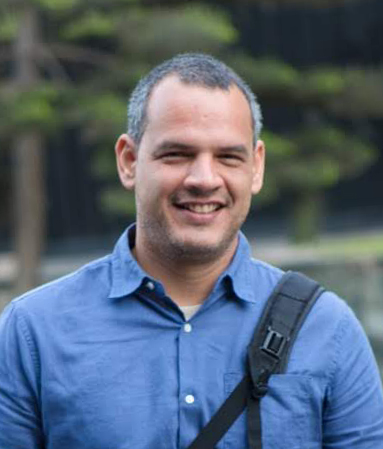
A family friend gave Enrique a link to apply and receive training and support to create a business. He immediately knew that his business should be a reflection of what he was passionate about: creating art. In fact, his innate ability and creativity for painting, to which he had integrated photography at the age of 25, gave him security when it came to knowing the product he was going to work with.
Enrique’s life changed when he found out that he had been selected for the Business Plan workshop. He had the product and would learn the necessary business skills. He is grateful to IOM, for supporting people who migrate in urgent circumstances, and for supporting people in difficult situations to pursue entrepreneurship.
He appreciates that another great gift came later: the possibility of participating in mentorship with people who had migrated like him and his family, who lived in the same city.:
“Those sessions made me reflect, analyze and discover new things about myself. I personally felt that they helped me become a better person. I am not only referring to professionally, but also on a human and personal level. The mentoring made me more empathetic, which resulted in an improvement in my business. I began to understand my clients more and better. They awakened new ideas that I took to the arts workshop. In seeing how my change had a positive impact on my business, I decided to open an extension that will soon see the light: art workshops for children and adults.”
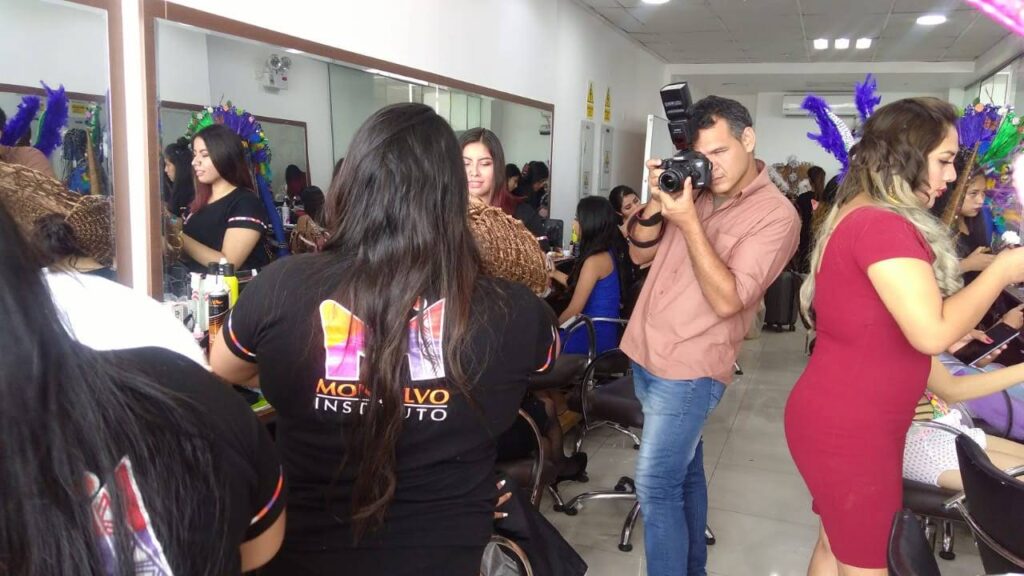
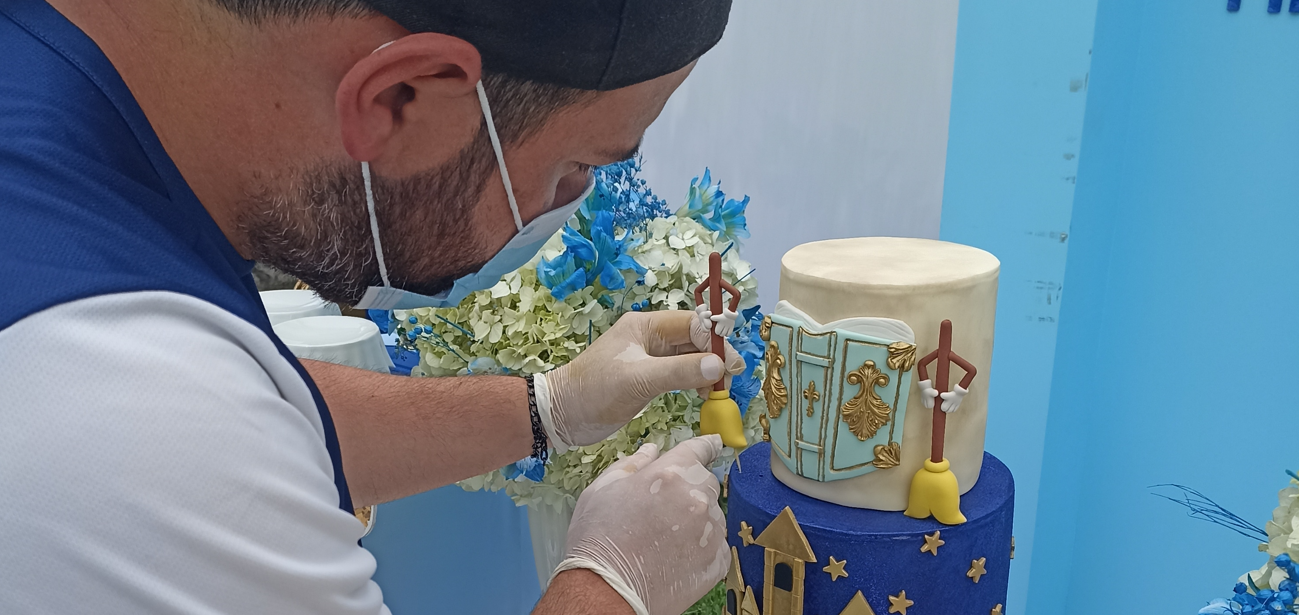
A Story Of Creativity And Resilience
- November 21, 2022
- admin
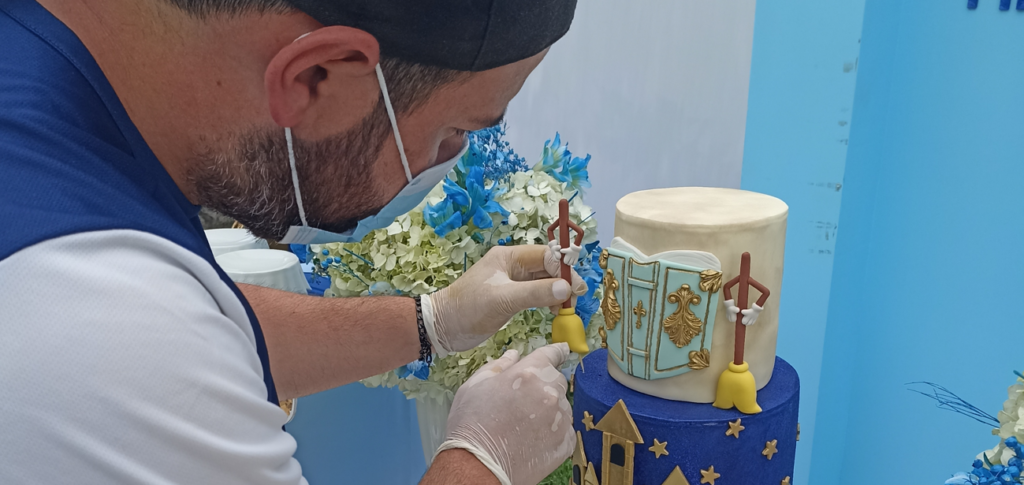
A Story Of Creativity And Resilience
For Ramón Alberto Ortegano, his original cake business with a history, called Amaretto’s, located in the city of Lima, is his great passion. Although it was not easy for this creative university professor to leave his family and his country of origin, starting from scratch in another country, weighing all the situations, was worth it, and as he himself confirms: “the new land received him with open arms.”
Two years after his arrival, even after dedicating many hours of work to his entrepreneurship, the situation of his business unexpectedly changed. Added to the lack of capital due to the abandonment of his partners, which left his company with only an asset of $20 US dollars, was the mandatory confinement due to Covid-19 and the return of strong feelings of nostalgia for his home country. However, Ramón did not allow himself to forget his dream, and transformed his difficult situation in an opportunity to increase his strength, and decided to give forced confinement a new meaning: he studied to implement in his pastry creations the element that until now had ignored: innovative decorations that create emotions in customers.
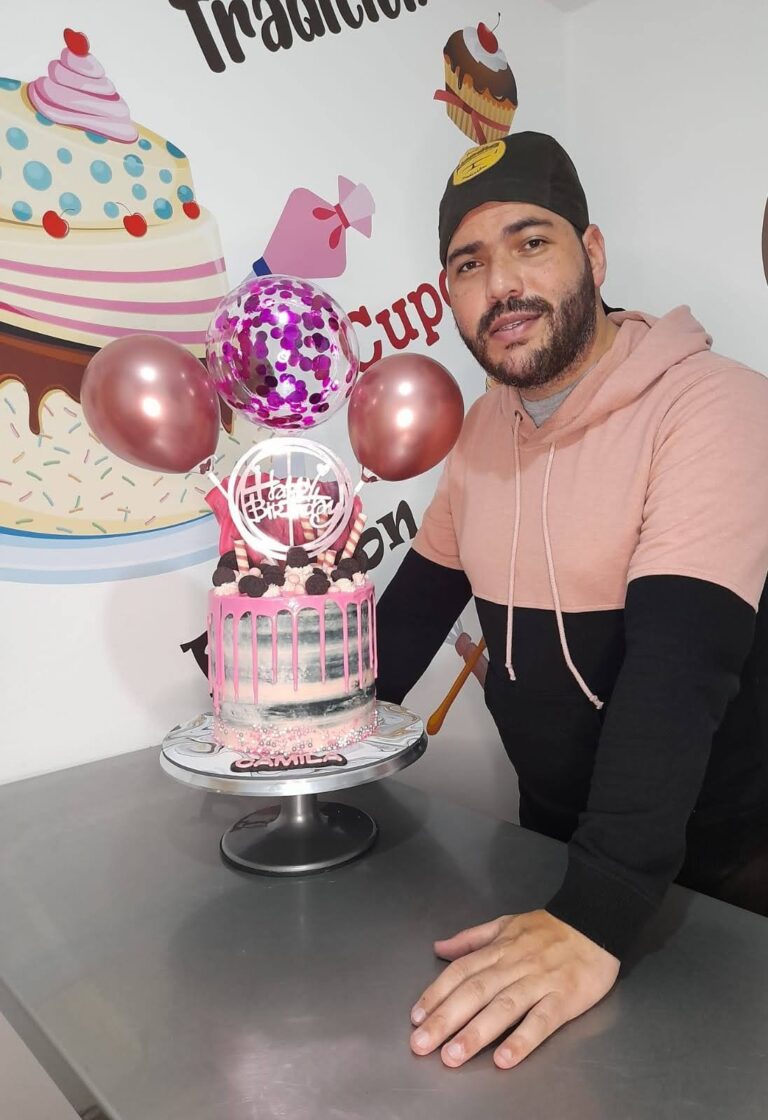
He discovered that the lockdown was the ideal time to dedicate himself to discovering innovative decorations that could add value to his business. This is how Amaretto’s Tradition was born, a new line of “personalized cakes”. The truth is that it did not take long for him to have a large client portfolio, which allowed him to participate in the IOM project aimed at obtaining seed capital, together with the excellent training that he needed for his entrepreneurship. And his dream gradually came true, the business began to expand more and more.
“Another of IOM’s great contributions was the mentoring program, which I personally did not know what it was about, but there is no doubt that it came just at a time when I was feeling very low, wanting to abandon everything, and although there were so many negative things in the environment, I asked myself “what do I lose by doing them?” It was then that Nora, our mentor, with a vibrant energy and professionalism, managed to get me involved in that program without any possible excuse to leave. I remember the first session perfectly: I was decorating a cake, and then she told me: “don’t stop doing what you’re doing, you’ll see that you can still share your thoughts with us.
From that moment, with each exercise of self-reflection, with each strategy of inner strengthening, I was rediscovering myself, and I could explore my new abilities. Mentorships have allowed me to scrutinize very deep inside who I am, and as it happens with computers, I can put my mind in “original version”, valuing the abilities I have in a very short time, and the change is brutal, as they would say in Venezuela . I am deeply grateful.”

- Stacey Cohan
- June 2, 2022
- 16:00
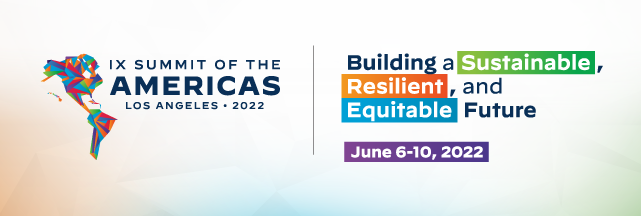
Empowering young entrepreneurs at Summit of the Americas
The 9 th Summit of the Americas begins June 6 th in Los Angeles, California. The focus is
“Building a Sustainable, Resilient an Equitable Future.” As world leaders work to build a
better future, we must engage the generation hoping to flourish in the future we are
trying to build.
Young people add their voices to the Summit of the Americas in the Sixth Youth
Americas Forum. USA for IOM CEO Maria Moreno engages with this critical audience
as the moderator of a panel focused on Supporting the Integration of Migrants in the
Americas on June 7 th . The purpose is to engage stakeholders across multiple sectors to support livelihoods, advance local development and create social cohesion between
migrants and host communities.
USA for IOM also plans to elevate our work as part of IOM’s Venezuelan response with
news about our Entrepreneurship in Movement program. The ongoing project, in
cooperation with Citi Foundation, works to assist Venezuelan migrants starting new
lives and new businesses in host communities. Maria Moreno explains, “We celebrate
the opportunity to highlight our “Entrepreneurship in Movement Program – EiM” as it
enters a third year. Investments like these are both aligned with the aims of this year’s
Summit and are key to promoting economic resilience and inclusive, peaceful, thriving
societies for all.”
The program mirrors the goals of this year’s Summit, striving to build a sustainable,
resilient, and equitable future for migrants and refugees. The VI Young Americas Forum is hosted and managed by the Young Americas Business Trust in partnership with the Organization of America States.
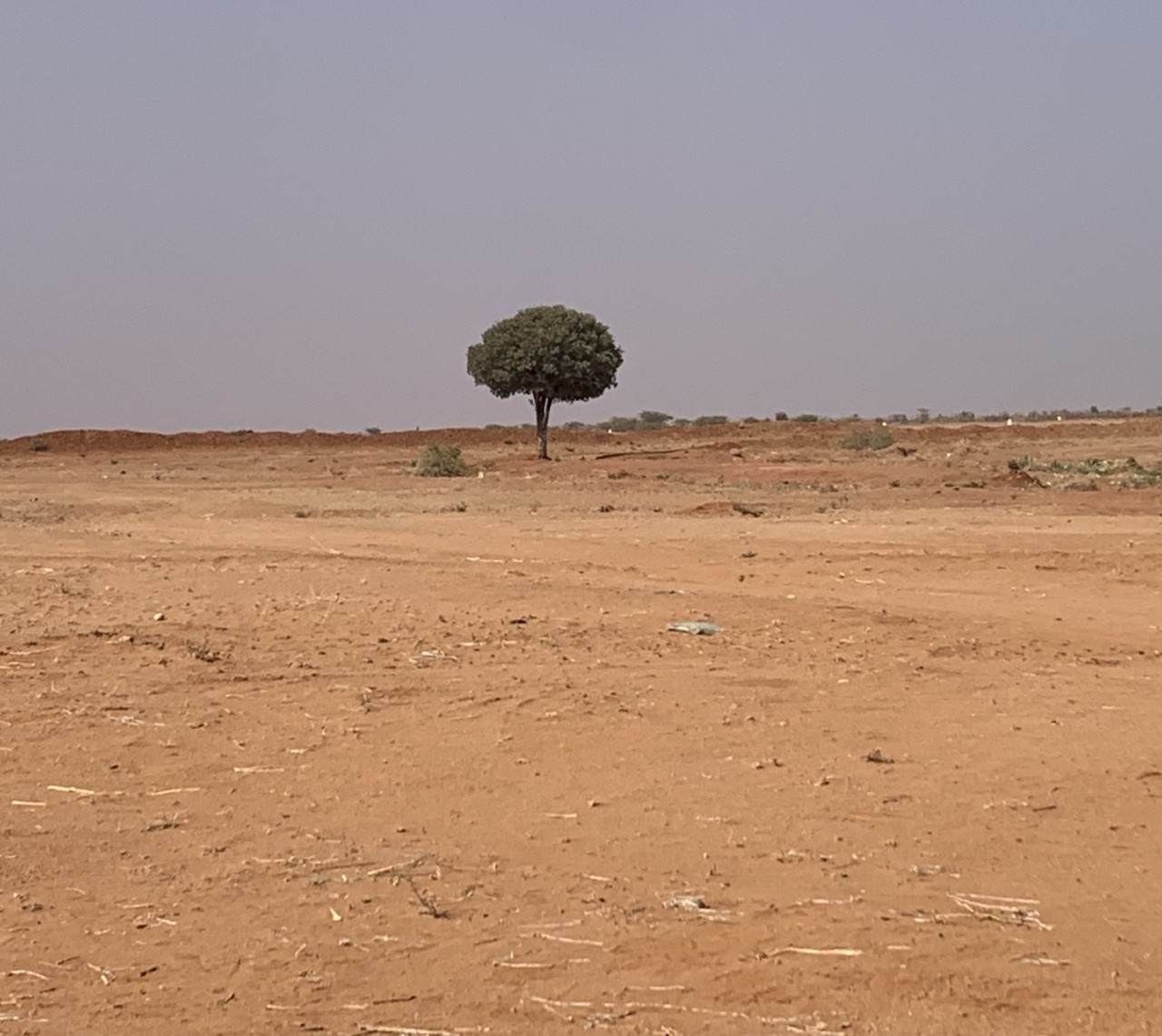
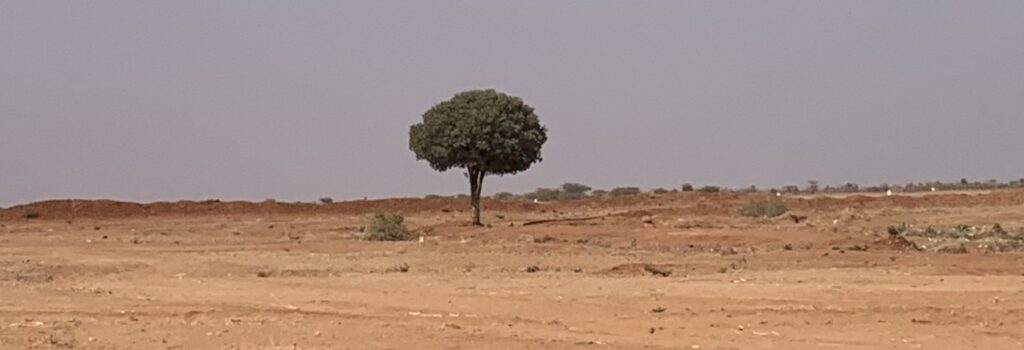
- Stacey Cohan
- April 19, 2022
- 00:11
15 Million People Face Humanitarian Crisis Due to Drought in the Horn of Africa
A single tree bravely defies the parched, scorched earth in Northern Somalia, near the border with Ethiopia. The Horn of Africa is enduring a historic drought, creating an urgent humanitarian crisis impacting an estimated 15 million people in Kenya, Somalia, and Ethiopia.
Pastureland and waterpoints are drying up across the region, displacing pastoral and argicultural communities dependent upon livestock for their survival. Thousands of acres of crops have been destroyed and in Kenya alone, 1.4 million livestock died in the final part of last year due to the drought. Some parts of Somalia are enduring the worst water scarcity in 40 years.
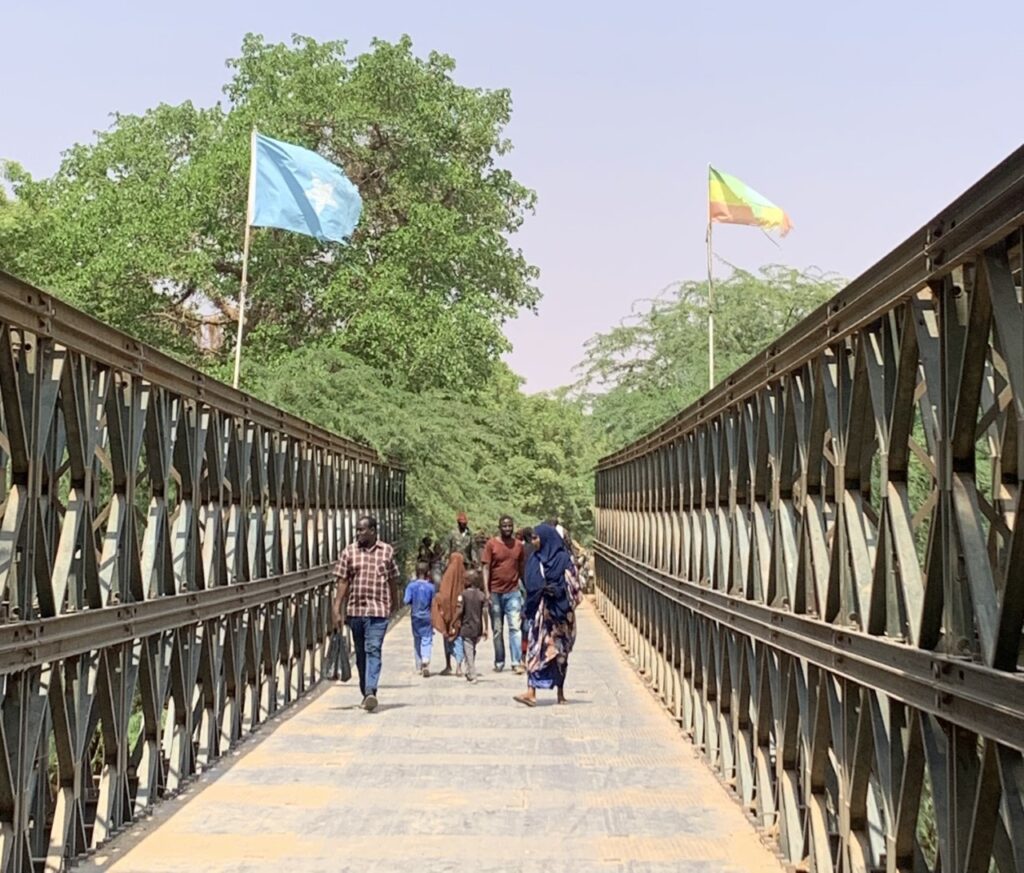
IOM’s flow monitoring is recording increased drought-induced movements from Somalia into Ethiopia, with migrants likely seeking access to water and pasture. However, Ethiopia is also suffering the dire consequences of the drought. In southern and south-eastern Ethiopia, drought has eroded the livelihoods of at least 4 million pastoralist and agro-pastoralist communities.
Tens of thousands of families are being forced to leave their homes in search of food, water, and pasture, heightening pressure on already-limited natural resources. Drought also increases the risk of inter-communal conflict, as farming communities and pastoralist communities compete for dwindling supplies of water.
IOM is working closely with governments, UN agencies and partners in each country to address acute water needs of internally displaced persons (IDPs), migrants and vulnerable groups to prevent a humanitarian disaster.
However, while IOM is actively responding, the needs are outpacing capacities due to limited resources. Additional funding is urgently needed to save lives and livelihoods, mitigate further displacement, and avoid greater needs in the future.
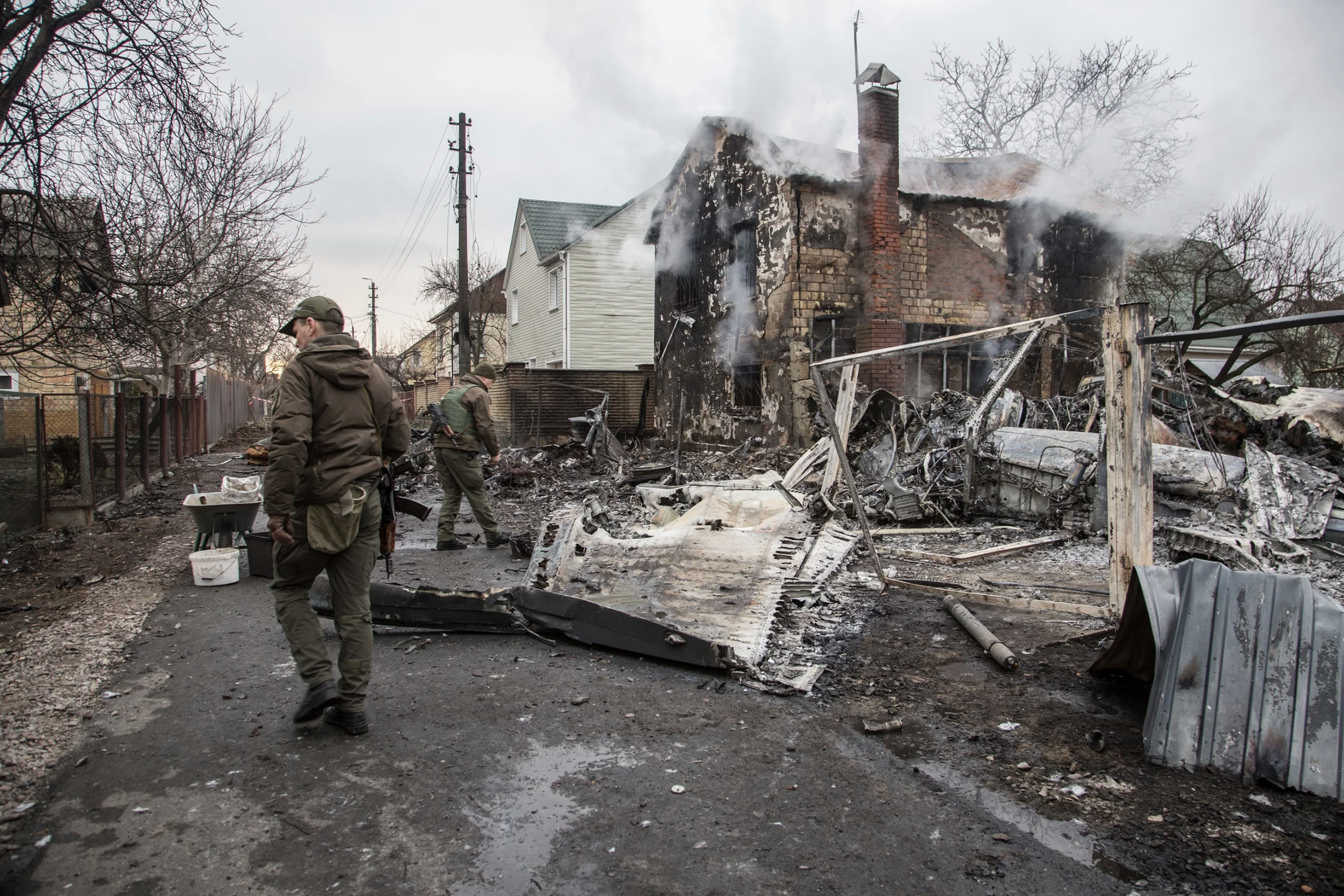
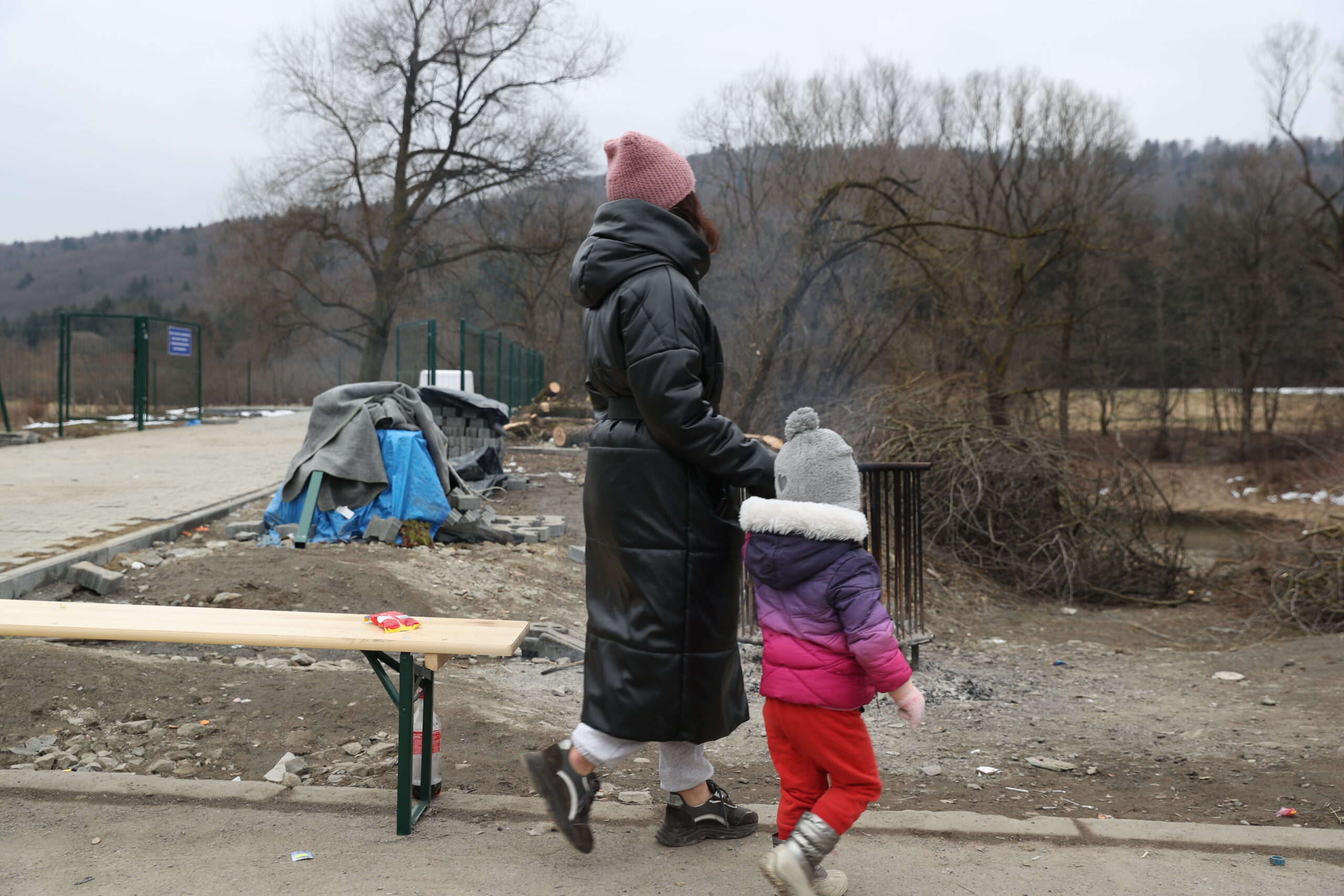
- IOM BLOG
- March 15, 2022
Belief is all that is left
My name is Daria, and I’m a local staff with IOM Ukraine in Kharkiv. I have been both a direct witness to, and a victim of the vast human tragedies that have unfolded since conflict overwhelmed my homeland.
I joined the humanitarian field in 2014, when Russia annexed Crimea, and backed separatists in Donetsk and Luhansk. My journey in this line of work began in Mariupol, a city that rose from the ashes after the events of 2014 and has succumbed once more to the flames in 2022.
Since the outbreak of hostilities in 2022, the city has been blockaded, deprived of food, water, heating, and gas, its communications from the outside world severed. Like many Ukrainians, I have relatives who fled to Mariupol following the fall of Donetsk in 2014. Right now, I have no idea whether they are dead or alive.
The latest fragment of information I received about the city came on 1 March. A friend reported to me that Mariupol was suffering from acute food shortages, and from desperation-induced looting. Blocked from any outside supply lines, people were collecting drinking water from filthy puddles, and were under constant shelling. Two green corridors for the evacuation of civilians were the only hope for those who had remained in the city. But when people tried to leave, the shelling continued.
At 5:00 a.m. on 24 February, I received the most terrifying phone call of my life. I was told that “the offensive had begun” and Kharkiv, where I was living, was one of the cities that had been struck first. It is one of the largest cities in Ukraine, with 2 million inhabitants. The city is oriented around a vast central Liberty Square and has a rich cultural history. As of 7 March, history is all that remains.
I am certain that we will rebuild our Kharkiv and our country. In times of great despair and pain, when the lives of one’s friends and family, when one’s own life, may be snuffed out in an instant, belief is all that is left.
"I am certain that we will rebuild our Kharkiv and our country. In times of great despair and pain, when the lives of one’s friends and family, when one’s own life, may be snuffed out in an instant, belief is all that is left."
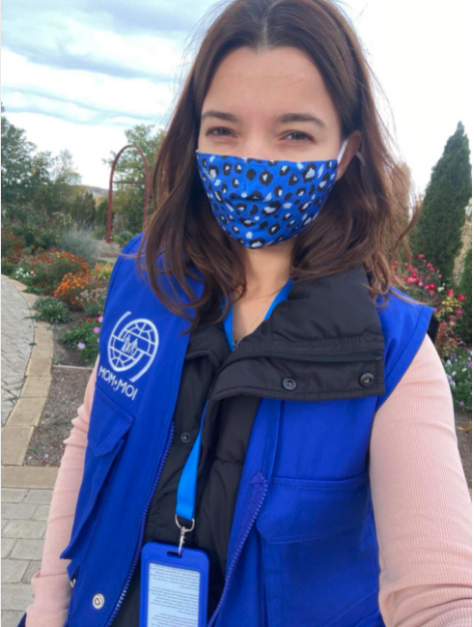
I have worked with internally displaced persons and refugees for seven years. In that time, I have encountered plenty of people for whom their home is their anchor. There are those who I have seen drown in the tempestuous waves of conflict, weighed down by their attachment to where they live. I love my parents, but I have led my own, itinerant, life for some time now. I have a responsibility not only to my family, but to others also – to my co-workers, and my friends.
On the morning of 25 February, I left in the direction of Dnipro, where my colleagues were at the time. I felt a great sense of responsibility for these people also. Half-an-hour before curfew ended, I loaded everyone I could into the car, with whatever belongings we could gather at such short notice, and drove off into the unknown. The original plan was to drive to Dnipro; on the residential road I planned to take out of the city, shelling began. Trying to pass through was futile; returning home even more so.
A spontaneous decision was made to head in the direction of Poltava and then on to Dnipro afterwards. It soon became clear, however, that there wasn’t enough gas for the entire trip. I had five people in the car, one of them just five months old. I couldn’t risk getting stuck on the road somewhere and, unable to find a gas station in Poltava, we decided to go to the town of Kremenchuk, hoping to find fuel for our onward journey.
The wild traffic on the road. The not knowing where or when that fateful shell will fall. The overall listless suspension of my emotional state. And the general hopelessness of everything. Due to all of these things and many more, I found myself wanting to lie and look at the ceiling for hours on end after the hard road to Kremenchuk. I did not want to try to break through to Dnipro. My colleagues were of the same mind.
And so, a new chapter of my life began, by chance, in Kremenchuk. My desire to stay a few hours in that city soon turned into a need to stay for weeks. Kremenchuk has become a hub for people who fled eastern Ukraine – a point of transit on the way to the west and away from the advancing Russians.
Since food and medical supplies are no longer delivered to Kharkiv region, people who have managed to escape are coming to Central Ukraine to catch their breath, fill up their car, and sleep for at least an hour without the piercing sound of air raid sirens. Some of those who have managed to escape stay here in Central Ukraine, with no opportunity to go further.
Ukraine is the largest country in Europe. In peacetime, the road from east to west took a day. Due to the shelling, the fuel shortages, and the heavy traffic, the same journey now takes the best part of a week.
As for Kremenchuk, I can’t help but marvel at the solidarity on display in such a time of crisis. Until 24 February, the small town in central Ukraine had never seen anything like this deluge of desperate, displaced persons. Since then, more than 12,000 people have come to the town. Many more have passed through. At the time of writing, there are six sites ready to offer overnight or indefinite shelter. Locals carry clothes, food, hygiene products, mattresses, blankets, and pillows for new arrivals. Several bank accounts have been set up to raise funds for the needs of the displaced.
I know for sure that in nearby towns such as Kryvyi Rih, Oleksandria and Poltava – which have similarly become transit hubs for thousands – vast and unprompted humanitarian action is taking place. By the efforts of the concerned townsfolk, everyone’s basic needs are being met and they are being offered a roof over their head. Still, everyday more people arrive.
The city continues to function, and supplies of food, medicine and gasoline are available; however, the rate of consumption has increased and now, with each new day of the war, one finds more and more empty supermarket shelves and medicines out of stock.
Defiantly, I believe we will make it through this war. Belief is all that is left.
By Daria Rumiantseva, IOM Ukraine
IOM is on the ground supporting the people from Ukraine. Join us providing humanitarian aid to the people of Ukarine.

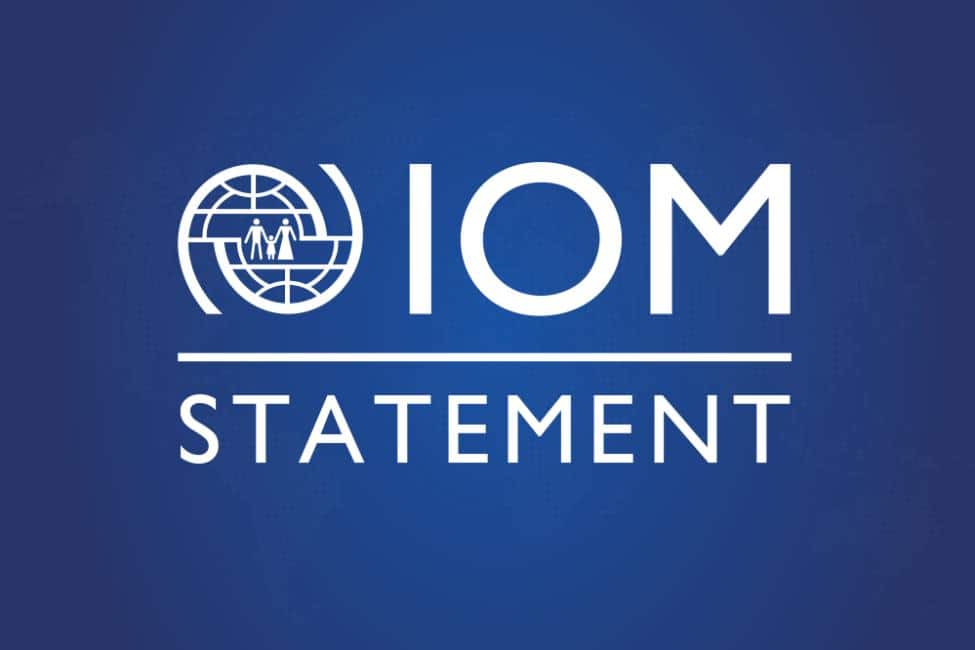
- Geneva
- February 27, 2022
- 17:25
Geneva – We are extremely worried about the escalation of military action in Ukraine and the deteriorating humanitarian situation.
We reiterate the United Nations Secretary General António Guterres’ call for an immediate cessation in hostilities and the protection of civilians and civilian infrastructure.
Eight years of conflict in Ukraine have displaced over 1.4 million people who now rely on assistance to meet their daily needs. This escalation will only deepen the humanitarian needs and compound the suffering of millions of families.
IOM, alongside the United Nations and the humanitarian community, is committed to staying and delivering vital assistance to the people of Ukraine and stands ready to respond to the emerging humanitarian needs in the country and the region, in close coordination with governments and partners.
We will continue to operate in a neutral and impartial manner, prioritizing the humanitarian imperative.
Source: IOM Global website
IOM is on the ground supporting the people from Ukraine. Join us providing humanitarian aid to the people of Ukarine.
*USA for IOM is a registered 501(c)(3), all donations are 100% tax-deductible.
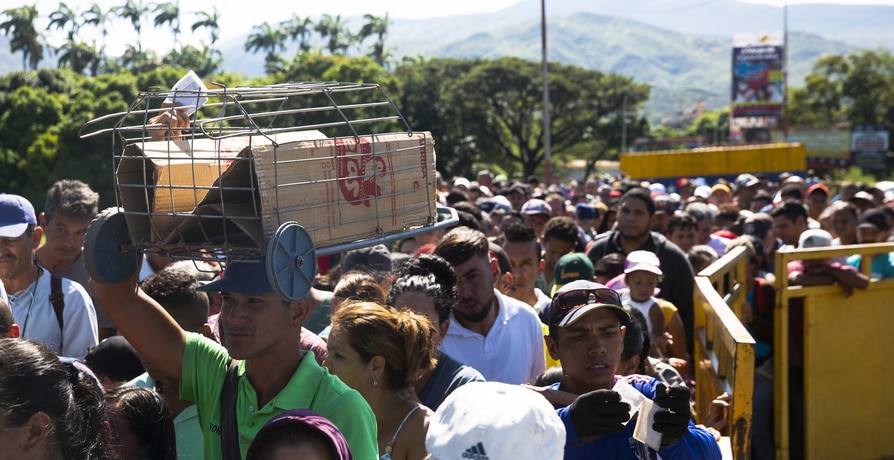

- USA for IOM
- February 8, 2022
- 22:49
The latest special issue of the Harvard Data Science Report explores the critical part data science plays in helping understand migration while also helping displaced persons by combating misinformation surrounding migration.
This collaboration showcases the importance of data science in the more significant move to help those displaced and migrating. Members of our team participated in different articles on this issue, and we invite you to read them to explore this further:
— Our Board Director, Tolu Olubunmi, shares her immigrant story in the article When Lions Write: An American Immigrant Story. This genuinely inspiring testimony lets us fully comprehend the importance of hope as a critical factor for migrants to make a difference and create the lives they want and deserve.
— Co-Editors Liberty Vittert and Rita Ko explore integrating academic and industry exploration of multiple aspects of forced displacement and world migration in the article “How Can Data Science Revolutionize Humanitarian Crises?. With 82.4 million forcibly displaced people, new approaches to the global refugee crisis are vital to combat the hostile rhetoric around human mobility, especially during the COVID-19 pandemic.
— Last but not least, in the article “How can improved data and information systems be applied more universally to the growing list of life-threatening human crises we now see around the globe and those that will inevitably follow?” James N. Purcell, our board chairman, explores the role of humanitarian aid in the article The Humanitarian Journey: From Root Causes to Recovery.
Collaborations like these, in which institutions create spaces for discussion, are integral to successfully help those in greatest need and successfully build a better future for all. In this case, migration showcases the significance of human mobility both historically and now and increases awareness on how much we have to learn from people on the move in facing the challenges of the world today.
We invite you to read the complete issue here for more information!

Baseball brings a community together
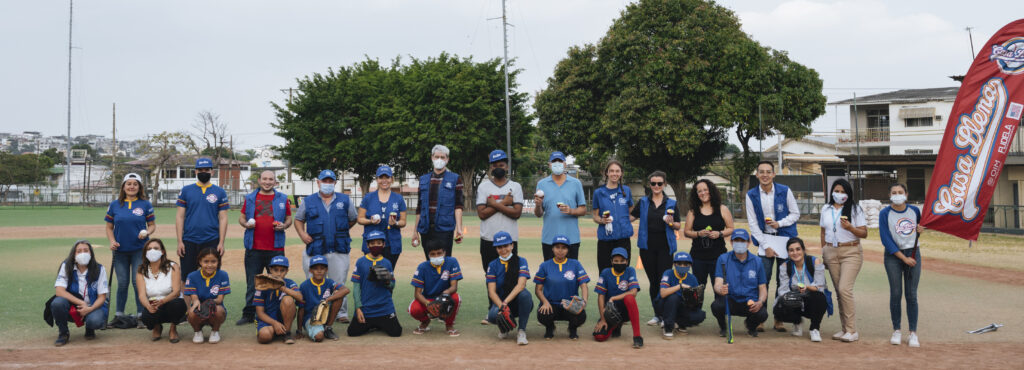
- admin
- November 1, 2021
- 10:19
“As the pitcher, you set the tone,” begins the coach of Casa Llena.
“It doesn’t matter what the score is, what the crowd is yelling, or even who’s up to bat; the only thing you can control is yourself. Each time you’re on the mound, it’s a new opportunity to set the tone you want.”
Self-regulation is one of the many life lessons players learn on IOM’s youth baseball team.
Along with gameplay and technique, players learn life skills, including taking things one step at a time as they round the bases, and that helping each other is essential to meeting their collective goals.
The name ‘Casa Llena’ or ‘Full House’ carries its own significance- a baseball term for when the bases are full, and scoring is imminent, it’s a reminder of the value of opening our doors to new neighbors.
Baseball represents an unlikely connection between arriving Venezuelan migrants and Ecuadorian locals in a predominantly soccer-loving country. But the 20 migrant and local youth brought together through this program see it as an opportunity to form community.
Yolannys, a 25-year-old Venezuelan migrant, has become close to both her fellow players and their parents. She says that joining the team has made her feel at home in a new country.
When asked about the program’s impact on her, she describes how coming to practices has helped her keep focused on her goals and that the friends she’s made have given her the encouragement she needed to grow her new business.
Samuel, a local player age-10, has enjoyed making friends, having fun, and adds that he’s learned a lot about the game from his Venezuelan teammates.
But for Ximena, 15, the team’s star hitter, she doesn’t notice any difference between her and her Venezuelan teammates on the field.
- « Previous
- 1
- 2

